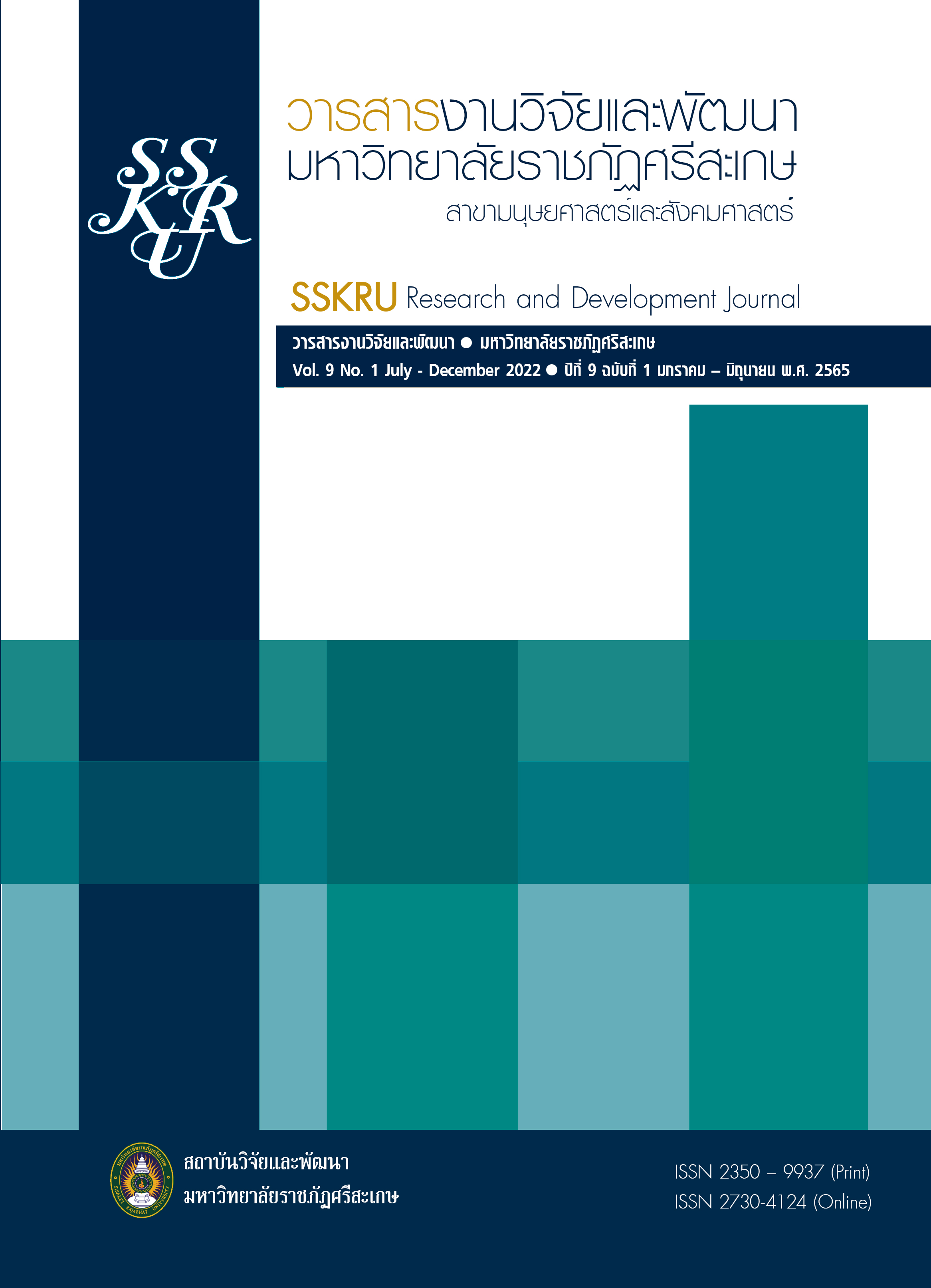Use of applied relaxation to reduce anxiety and increase performance in elite thai rifle shooters
Main Article Content
Abstract
Progressive muscle relaxation (PMR) is a set of exercises designed to reduce anxiety and tension in the body. Through the practice of tensing and relaxing groups of muscles, we learn to feel the difference between tension, relaxation and release muscle tension. This study investigated whether a remotely delivered, eight-week applied relaxation technique (AR) based on PMR could reduce somatic anxiety and improve shooting performance in three elite rifle shooters of both genders (1 male, 2 females) age between 25-30 years old. The participants were required to practice the stages of applied relaxation techniques (AR: Progressive Relaxation, Release Only Relaxation, Cue-Controlled Relaxation, Differential Relaxation, Rapid Relaxation, Application Training) every day over the course of the 8 weeks intervention. AR was delivered remotely by the experimenter and independently to each participant. This study was aimed for the performer to recognize early signals of anxiety and learned to cope with it, and further using the applied relaxation techniques can reduce anxiety and stress. The primary hypothesis of the study is that the AR would enhance elite shooters' performance and mental skills. To conclude, the study demonstrated that relaxation intervention could be a viable option for enhancing performance and reducing anxiety over a medium period of the time in elite shooters.
Article Details

This work is licensed under a Creative Commons Attribution-NonCommercial-NoDerivatives 4.0 International License.
This article is published under a Creative Commons Attribution-NonCommercial-NoDerivatives 4.0 International License (CC BY-NC-ND 4.0), which allows others to share the article with proper attribution to the authors and prohibits commercial use or modification. For any other reuse or republication, permission from the journal and the authors is required.
References
Lundqvist, C., Kenttä, G., & Raglin, J. S.Directional anxiety responses in
elite and sub‐elite young athletes: intensity of anxiety symptoms matters.
Scandinavian journal of medicine & science in sports, 21(6);2011.853-862.
Cogan, K., & Petrie, T.Sport Consultation: An Evaluation of a Season-Long
Intervention with Female Collegiate Gymnasts. The Sport Psychologist, 9(3); 1995. 282–296.
Murphy, K. R., & Davidshofer, C. O.Psychological testing. Principles, and
Applications, Englewood Cliffs;1988.18.
Nock, M., Michel, B., & Photos, V. Single-case research designs. In D. McKay
(Ed.), Handbook of research methods in abnormal and clinical psychology (pp. 337-350). Thousand Oaks, CA: Sage. Raglin, J. S., & Hanin, Y. L. Competitive anxiety;2007.
Weinberg, R. S., & Gould, D. Foundations of sport and exercise psychology,
E.Human kinetics;2019.
Whelan, J. P., Mahoney, M. J., & Meyers, A. W. Performance enhancement in
sport: A cognitive behavioural domain. Behaviour Therapy;1991.22(3),307-327.
Birrer, D., & Morgan, G. Psychological skills training as a way to enhance an
athlete's performance in high‐intensity sports. Scandinavian journal of medicine & science in sports;2010.20, 78-87.
Jones, G. Stress and anxiety. In S.J. Bull, Sport Psychology: A self-help Guide
(p. 31-51); 2000.
Maynard, I., Smith, M., & Warwick-Evans, L.The Effects of a Cognitive
Intervention Strategy on Competitive State Anxiety and Performance in Semi-
professional Soccer Players. Journal Of Sport And Exercise Psychology;1995. 17(4), 428-446.


